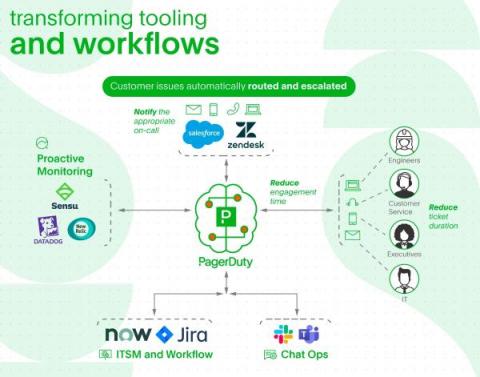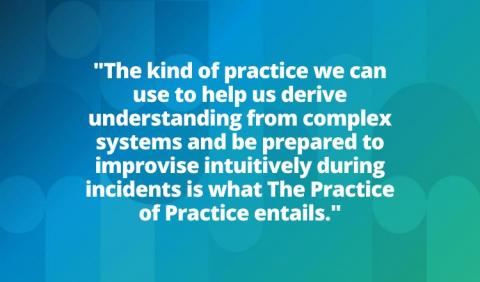Operations | Monitoring | ITSM | DevOps | Cloud
Incident Management
The latest News and Information on Incident Management, On-Call, Incident Response and related technologies.
Intelligent Swarming vs. Tiered Support: How Customer Service Teams can use PagerDuty to Swarm Critical Issues
Most support organizations today adopt some form of the traditional tiered support model. It is one that is based on a process of escalations and customer handoffs. Under this model, customer issues get escalated through multiple levels of a support hierarchy, with three tiers being a common workflow.
Learn how PagerDuty can help address critical work across all departments
PagerDuty’s Operations Cloud helps organizations with critical work across the entire business, from IT teams to customer service to human resources, marketing, sales, and more. With PagerDuty, organizations can prioritize accurately, respond efficiently, and reduce operational overhead. In this blog post, we’ll share examples of how PagerDuty can be used for critical work in all departments, not just IT, using our new Solution Guides for Business.
SRE and the Practice of Practice
What the Ideal Incident Lifecycle Should Be
Today’s organizations are managing increasingly complex IT ecosystems and pressured to deliver on innovation—all while trying to maintain service performance and reliability to keep up with the always-on digital economy. With IT complexity growing exponentially, incidents have become a common, if not day-to-day struggle for many businesses. Incident management is the process or method that modern organizations use to prepare for and respond to service disruptions.
The Universal Language: Reliability for Non-Engineering Teams
Building an SRE Team with Specialization
The Human Side of Being On-call: 5 Lessons for Managing Stress, Anxiety, and Life While Being On-call
Within DevOps, we talk a lot about the on-call process—but what about the human side of being on-call? For example, what are effective ways of managing stress and anxiety during a shift? How can one manage life situations that make being on-call difficult—such as being responsible for watching the kids during an on-call rotation? And how can an empathic team culture help prevent burnout and turnover?











